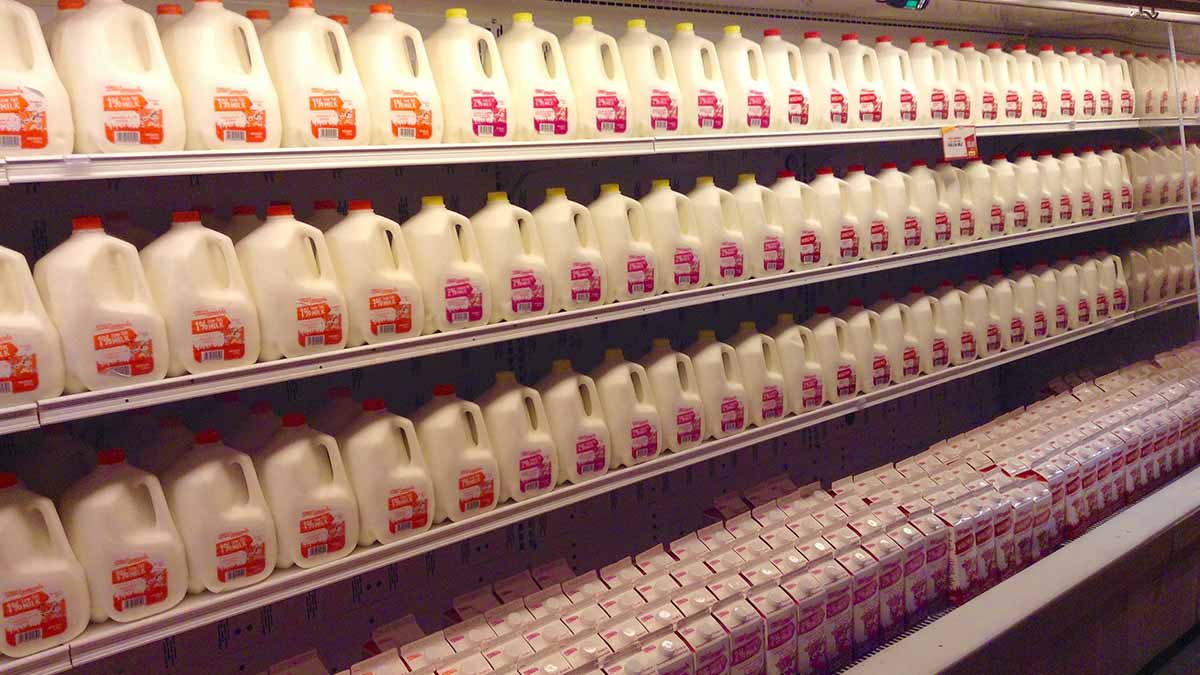
Why You Should Have a Cow about Milk Labeling Rules
What do you think the term “skim milk” means? To me, it seems to have a fairly obvious meaning. You take milk, skim most of the fat off, and violá! Skim milk. Unfortunately, the Florida agricultural authorities have a different idea. The Ocheesee Creamery discovered this when they tried to market what I and most normal people would consider to be skim milk under the label “Pasteurized Skim Milk. No Vitamin A Added.” While that seems pretty straightforward to me, the authorities weren’t happy.
You see, most skim milk has added Vitamin A to replace what is lost in the process of removing the fat. Skim milk without added Vitamin A is lot more like milky water, at least in nutritional content. Which is fine. If people want to drink milky water, I don’t see why they should be prevented from doing so.
These sorts of food labeling laws, which have long been an interest of mine, straddle the line between fraud prevention and special interest protection. On the one hand, it’s entirely sensible to prevent companies from lying to their customers, especially in ways that might harm consumers. If a product being marketed as “horseradish” is in fact mostly made up of wood chips, that’s a problem. On the other hand, it’s very easy for these laws to go too far, imposing burdens on producers and protecting big food lobbies from competition.
The problem with labeling, of course, is that not every term has an objective meaning that is commonly understood in identical ways by everyone. I’ve argued in the past that the word “natural” is inherently subjective, and should therefore be treated as a marketing term, rather than an informational term. This brings us back to the similar battle Ocheesee is raging against Big Milk in Florida.
Reason Magazine reports an extensive back and forth with the Florida Department of Agriculture & Consumer Services, in which Ocheesee Creamery was repeatedly given insulting and inferior sounding labels like “Non-Grade A”, “imitation” and “milk vitamins removed.” In all cases, the term “skim milk” was forbidden. I guess it’s technically accurate to say that the “milk vitamins” are removed from skim milk, since it happens as a result of removing the fat, but it’s certainly a loaded term. You could say the same thing with the phrase “fat removed”, but consumers would perceive the product completely differently. One has positive connotations, and the other negative.
This is the problem with government regulators’ obsession with “facts.” We think of facts as objective things, but in most cases, there either are no facts due to the subjective nature of a claim, the facts are not possible to ascertain with accuracy, or the facts can be represented in multiple ways, each conveying its own bias. The notion of regulatory objectivity is, then, an illusion. Depending on whether producers are forced to say they took out fat (bad) or vitamins (good), consumers will get a different impression of how good the product actually is for them (impossible to say with objectivity anyway.)
Labeling then becomes a game, in which the most powerful food lobbies are able to secure rights for the terms they like, while saddling the less powerful with unflattering alternatives. It’s not about informing the consumer, it’s about using government to make sure your product is represented more favorably than that of your competitors. Unsurprisingly, the Dairy Lobby is siding with Florida against the small creamery.
Nothing in Ocheesee’s proposed label could possibly be confusing or misleading to consumers. The fact that the state objects to it anyway proves that this was never about consumer welfare at all. Like most things the government does, it’s about control.
This article originally appeared on Conservative Review.
Free the People publishes opinion-based articles from contributing writers. The opinions and ideas expressed do not always reflect the opinions and ideas that Free the People endorses. We believe in free speech, and in providing a platform for open dialogue. Feel free to leave a comment.



